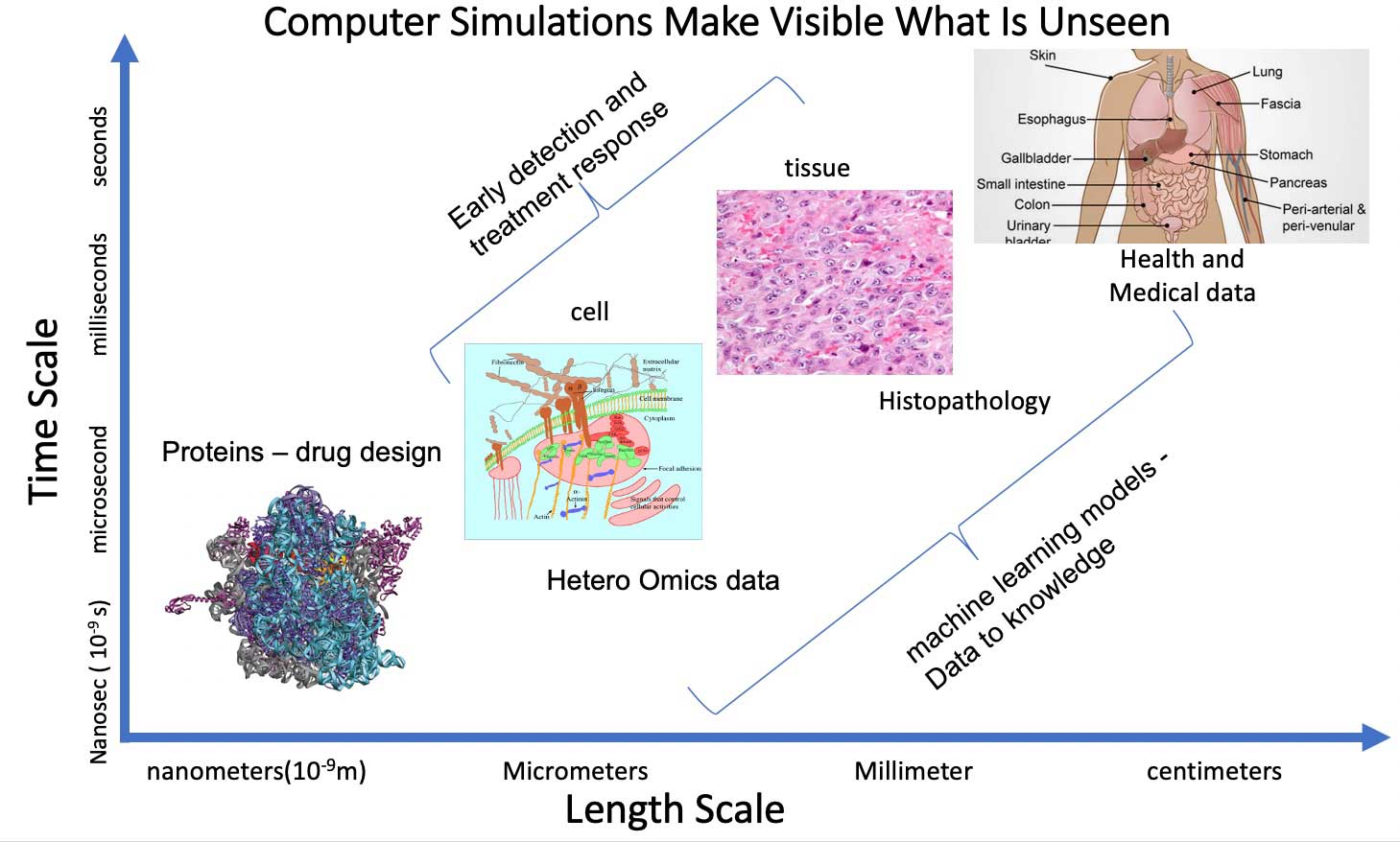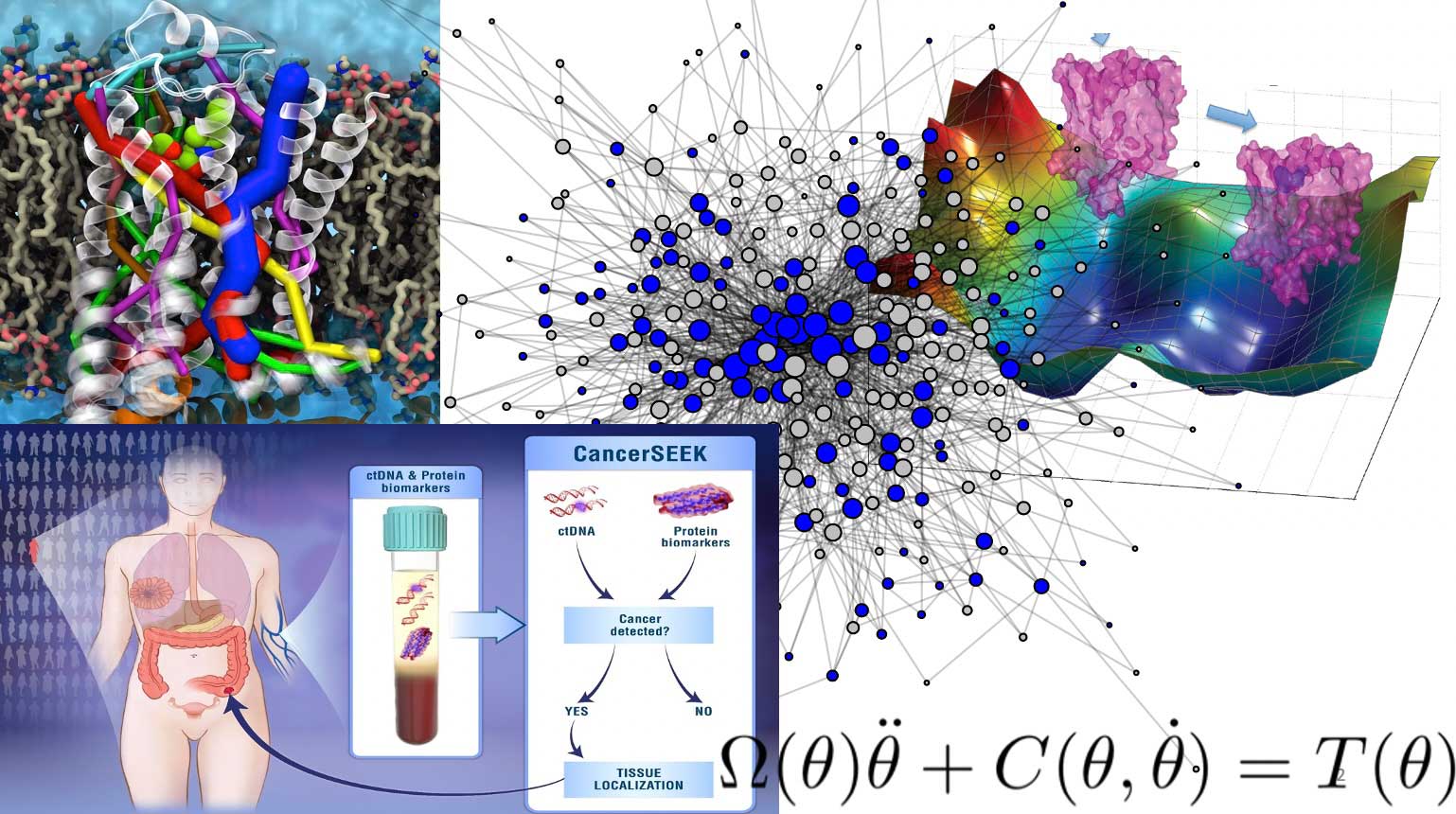Computational and Quantitative Medicine

The mission of our department is to integrate various aspects of computational medicine with a focused effort towards building cross disciplinary collaborations forging ahead for better diagnostics, improved personalized therapies and more efficient clinical trials, which are consistent with the mission of City of Hope. The Department of Computational and Quantitative Medicine is at the intersection of information technology,biology and medicine sciences and is headed by Nagarajan Vaidehi, Ph.D.
View Faculty
The department is an integral part of multidisciplinary disease-related research teams within Beckman Research Institute of City of Hope, the Arthur Riggs Diabetes & Metabolism Research Institute and the comprehensive cancer center. It utilizes quantitative science methods — including mathematics, physics, statistics and engineering — to conduct medical research and train the next generation of investigators.
The department is an integral part of multidisciplinary disease-related research teams within Beckman Research Institute of City of Hope, the Arthur Riggs Diabetes & Metabolism Research Institute and the comprehensive cancer center. It utilizes quantitative science methods — including mathematics, physics, statistics and engineering — to conduct medical research and train the next generation of investigators.

The Department Consists of Divisions:
Division of Computational Structural Biology and Drug Design
Headed by Nagarajan Vaidehi Ph.D. (director)
Division of Biostatistics
Headed by Joycelynne Palmer, Ph.D., the Division of Biostatistics is home to the statisticians of the Biostatistics and Mathematical Oncology Core, a shared resource of the City of Hope’s comprehensive cancer center. The division encourages the collaboration of statisticians in cancer, diabetes and other research areas, and promotes statistics and epidemiology research, education and service.
Division of Informatics
Headed by Xiwei Wu Ph.D. (director)
Division of Mathematical Oncology and Computational Systems Biology
Headed by Russell Rockne, Ph.D., the Division of Mathematical Oncology is focused on patient-specific mathematical models of cancer growth and response to therapy. This research lies at the interface of mathematics, imaging, histopathology and genomics, combining information to mathematically model treatment of individual cancer patients, and how their tumors evolve when confronted with specific treatment regimens.
Division of Health Analytics
Headed by James Lacey, Ph.D., M.P.H., the goal of the Division of Health Analytics is to generate insights that enable data-driven decisions in research, clinical care and public health. The division uses broad and diverse data, technologies, analytic methods, strategies and partnerships to ask questions, tackle problems and create knowledge. The division conducts innovative and hypothesis-driven, population-health informatics and research projects and collaborates with other stakeholders across the enterprise to improve research, clinical and business outcomes.
Division of Mathematics for Cancer Evolution and Early Detection
Headed by Cristian Tomasetti Ph.D. (director)